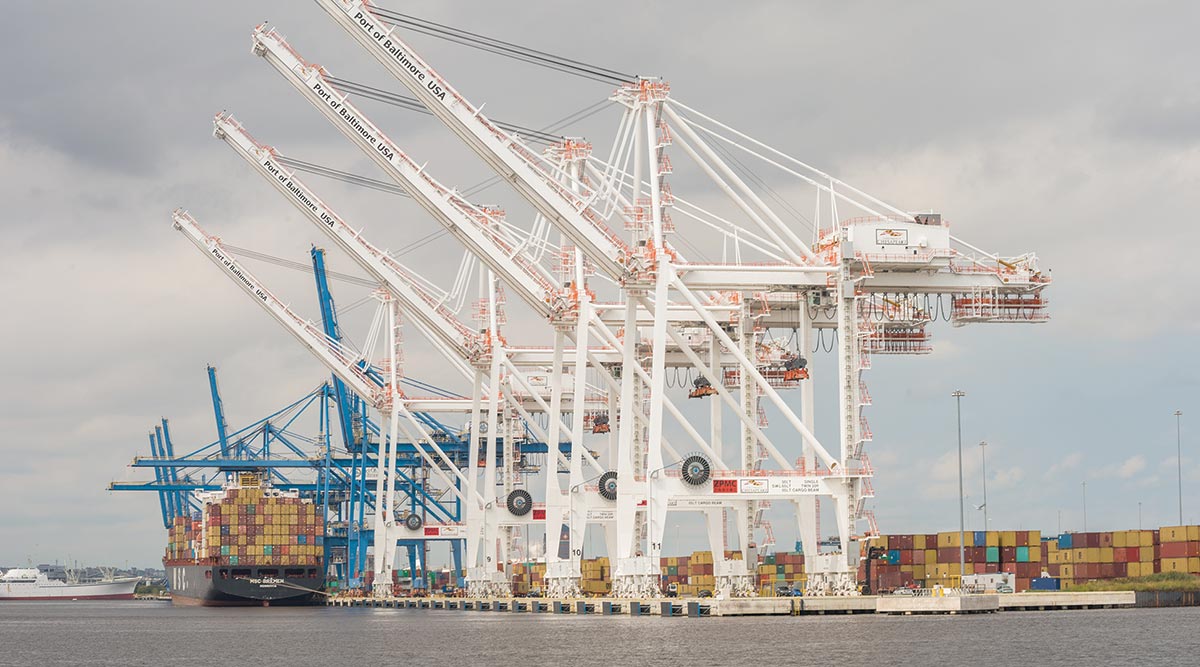Senior Reporter
Freight, Construction Groups Push Back on Trump’s Efforts to Defund TIGER Grants

This story appears in the June 5 print edition of Transport Topics.
Groups representing the highway freight and construction sectors are pressuring members of Congress to continue to fund Obama-era infrastructure grants the Trump administration is proposing to eliminate.
The influential Transportation Construction Coalition, led by the American Road and Transportation Builders of America, criticized the administration for pushing to eliminate the Transportation Investment Generating Economic Recovery (TIGER) grants, which they praise for providing states and municipalities a boost in funds since 2009.
“A number of the programs the president proposes to cut or eliminate, such as TIGER grants, are very popular with members of both parties on Capitol Hill,” ARTBA said in a statement obtained by Transport Topics. The group added that it will continue to work to “secure increased federal investment for all transportation modes.”
Other groups, such as the American Association of Port Authorities, also pledged to target lawmakers for more transportation dollars after expressing concern about the significant reduction in the TIGER grants in Trump’s budget request.
“Ports and their private-sector partners plan to invest $155 billion over the next five years alone in port facility infrastructure, and it’s vital that supporting federal investments be made, primarily to improve the waterside and land-side connections to our nation’s ports,” AAPA President Kurt Nagle said May 24.
Natso, which is the group that represents truck stops and travel plazas, and the American Public Transportation Association, sounded the alarm on the proposed cuts as well.
“This budget proposal to eliminate critical public transportation infrastructure projects is inconsistent with addressing America’s critical transportation needs,” APTA acting CEO Richard White said.
Since 2009, TIGER grants have backed more than 400 projects. State and municipal officials have used the additional funds to promote commerce and connectivity through rural projects and large-scale highway expansions. Recipients have included the Little Rock Port Authority in Arkansas, a freight mobility project along U.S. 169 in Scott County, Minn., a freight rail project in South Carolina, the Indianapolis IndyGo electric bus fleet, Mississippi’s Port of Pascagoula, and Maryland’s Port of Baltimore.
Mick Mulvaney, director of the White House Office of Management and Budget, called the need to enact cuts in the fiscal 2018 budget for TIGER and other programs a “moral imperative.” Secretary of Transportation Elaine Chao suggested that lawmakers shift their focus from TIGER to the freight grants under Fostering Advancements in Shipping and Transportation for the Long-term Achievement of National Efficiencies (FASTLANE), established under the 2015 FAST Act highway law.
Yet the Republican-led Congress already rejected the administration’s earlier call to defund the grants. The fiscal 2017 funding deal Republicans and Democrats agreed to in April retained $500 million for TIGER, matching the fiscal 2016 levels.
Most Democrats have long been proponents of TIGER grants, as have senior Republicans.
Sen. Jim Inhofe (R-Okla.), a former chairman of the Environment and Public Works Committee, emphasized TIGER’s popularity with colleagues and doubted if they could be replaced.
Other Republicans, such as Rep. Sam Graves (R-Mo.), chairman of the Highways and Transit Subcommittee, have a critical view of the grants. “The biggest problem with the TIGER grants is that they can be very, very competitive, and very political,” Graves told TT last month.

